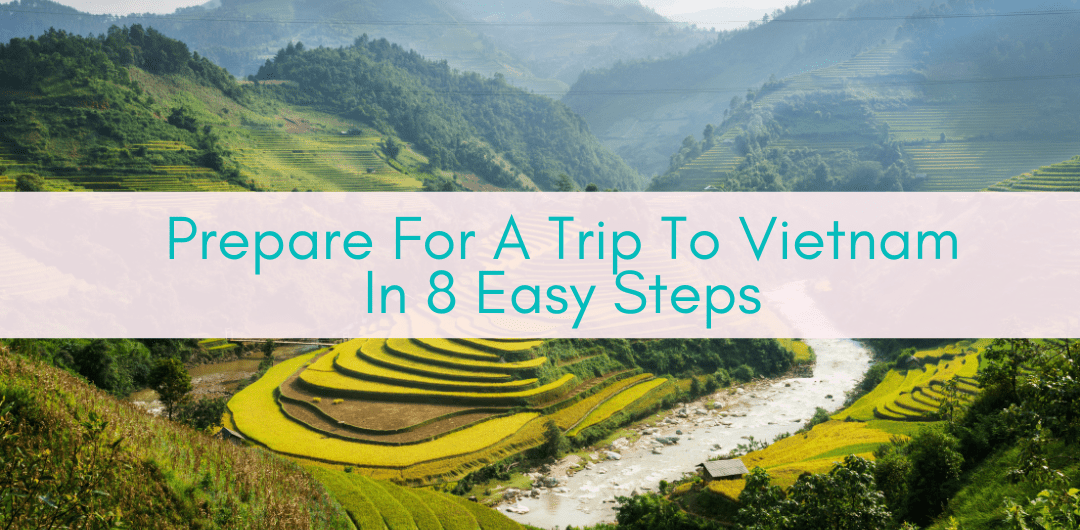Preparation is key for any adventure! I booked an amazing trip to Vietnam with Girls Who Travel and wanted to make sure I was as prepared as can be. If you, too are considering traveling to this beautiful country, read on and learn how to properly prepare for a trip to Vietnam. I will cover everything from visas to the correct mosquito repellent to water safety, ensuring you will have a trip with no hiccups!
Prepare For A Trip To Vietnam In 8 Easy Steps

Whenever you visit a new country, there are lots of things to learn and consider before you go. I’ve done hours of in-depth research to come up with the necessary answers so you don’t have to!
Step 1: Know Your Passport Power
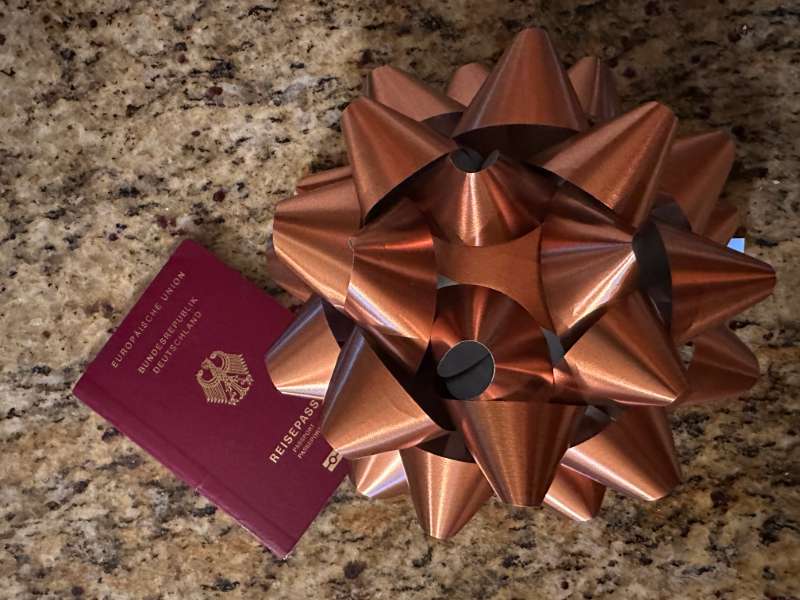
Before you even book your trip, find out if you need a visa to go to Vietnam, and how easy it is to obtain. Most nationalities are required to get a visa before arrival. But some passports hold more power than others, and it’s essential that you find out if you’ll be able to get a visa, and how long the process takes. Passport privilege is real, and you don’t want to end up having your trip booked only to have your visa denied.
It is generally easy to apply for online, and in most cases will be granted quickly. I suffered through some serious visa confusion. I’m a German citizen, and Vietnam allows us visa-free travel. However, that was temporarily suspended during the pandemic, and I was unsure if it had been reinstated or not. If you are unsure about anything visa related, contact the Vietnamese embassy in your country. They will be able to give you the correct information. Or, if you want a little more help, you can get a streamlined and convenient way to apply for your travel visa with Visa Express, which offers a comprehensive service that simplifies the application process.
Step 2: Book Your Trip
Once you know that you can easily obtain or don’t even need a visa, you can book your trip! Maybe you love to fly solo and do your own thing. Or maybe you want some company. In that case, consider booking with a company that offers small group tours such as G Adventures. There are plenty of reasons why solo travelers love to go on a tour. There’s generally a good mix of group activities and free time. One can make new friends or decide not to. And there’s no headache trying to put together an itinerary, book accommodations and excursions and the likes.
Or stay up to date on the amazing adventures Girls Who Travel has in store and sign up for our newsletter.
Step 3: Get Excited!
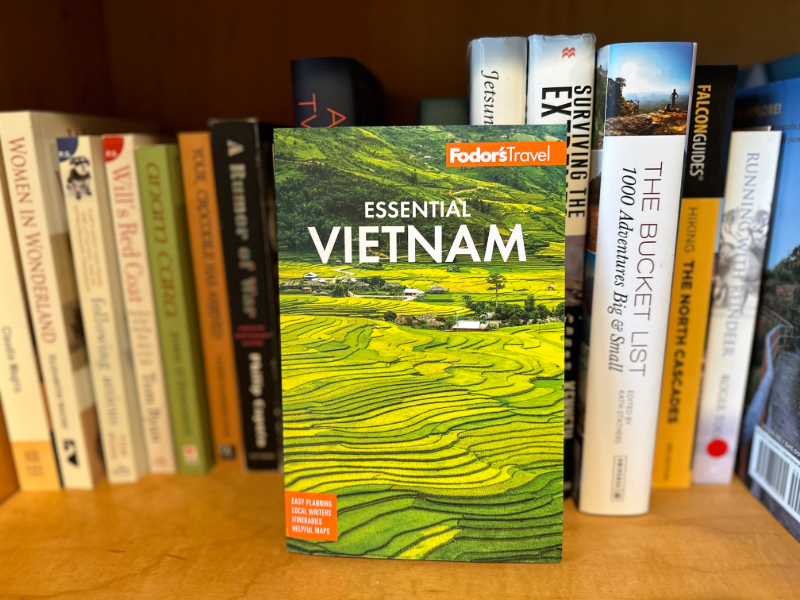
I love to travel and explore new countries. But I find that the more I know about a country in advance, the more I am able to appreciate what I see when I’m there. I’ve put together a list of the 39 best books about Vietnam that’ll not only get you excited, but well prepared for your trip.
Step 4: Contact A Travel Doctor
Talking to a travel doctor is something that’s often overlooked, but it is absolutely crucial you do so. Why a travel doctor and not your regular physician you wonder? That’s what I thought, so I happily made an appointment with my doctor and presented him with demands for Japanese Encephalitis vaccines and more, to which he looked confused and told me ‘we don’t have those here, contact a travel doctor’.
There’s one reason. But there are more, and I discovered those when I went to my appointment with a travel doctor. Now I have to say, I was very lucky with the one I picked. He is a retired physician who still teaches and takes his student to different places in Asia for three to four months every year to help our in clinics in poor areas in the countryside. Which translates into a deep knowledge of the region. I had, of course, done my research on which vaccines were required. The best sources for this are institutions such as the Center For Disease Control (CDC) in the US, or the corresponding one in your country.
Armed with my list I went to my appointment. And learned that I don’t even need half of these vaccines with exotic names. While there are general recommendations for each country, the protection you need may vary with the regions you visit. While typhoid was a must for me, Japanese Encephalitis was not because the Mekong Delta wasn’t on my itinerary. Instead of getting vaccinated for everything under the sun this doctor was able to give me precise advice and information.
I recommend that you visit a travel doctor well ahead of time. Some vaccines need a second shot after a certain amount of time, and depending on your current vaccination status it’s possible that you will need a few weeks to get up to speed.
I also received a prescription for antibiotics in case of traveler’s diarrhea, and advice on which over the counter medications I should definitely pack. After the visit I felt incredibly well prepared for everything that could potentially do wrong medically.
Step 5: Do Research On Safety
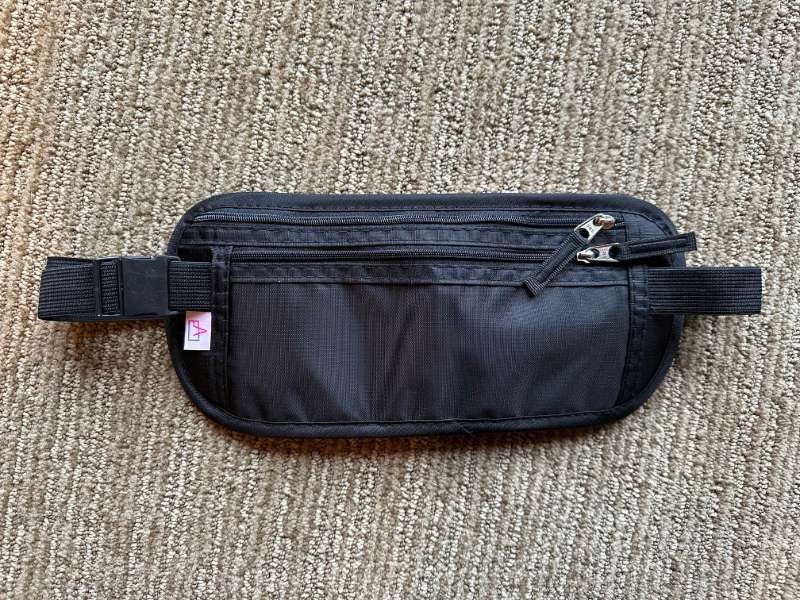
Did you know that more than 60% of women say that concerns about safety keep them from traveling? If that sounds familiar, I highly recommend getting the safety travel course for women, which the Girls Who Travel experts have created to help you quickly get the tools you need to feel safe and be safe. However, even experienced globetrotters should always do country specific research. While Vietnam is one of the safest destinations for female travelers, there are still concerns:
- Petty crimes such as pick-pocketing are common. Use a money belt to store your valuables such as passport and credit cards. Never take out the money belt in public. Wear it at the small of your back.
- Do not wear any valuables such as jewelry or a watch. Not even valuable earrings.
- Beware of robberies. The best thing you can do is carry a throwaway wallet. Put an expired credit card in there, maybe even an expired ID if you have one. Make it look real without adding anything that’s important to you. Put some money into it, maybe a day or two worth of expenses. If someone threatens you with a knife, show them the wallet, then throw it and run the other way. Scream. They will likely suspect that you have more valuables on you, but if they have the choice between getting an easy bounty (your throwaway wallet) or running after a screaming tourist for a bigger bounty, they will always go for the easy target and you are safe.
- Another common way to get robbed is someone one a motorbike driving by and grabbing your purse. It doesn’t matter if you have a cross body strap, they will just pull you along until you give it up. Don’t carry a purse, but if you do, walk as far away from the road as you can and keep your purse on the side of your body that’s away from the road.
Step 6: Consider Your Health And Well-Being
Safety concerns should extend beyond the worry about your valuables and bodily harm caused by strangers. The other two major things to prioritize are your physical as well as your mental health.
Physical Health
Water and food safety are a concern in Vietnam. NEVER EVER drink tap water. Do not even use it to brush your teeth. Bottled water is safe, BUT make sure the seal isn’t broken. It isn’t unheard of for used plastic bottles to be refilled and presented as new. Which leads to you drinking tap water and potentially getting sick.
But there is one thing you can do to save the environment (and avoid a constant search for bottled water, if you, like me drink tons every day): get a steripen. A steripen, correctly used, kills 99.99% of all bacteria in water, which is the main concern in Vietnam. A LifeStraw filter bottle can do the same thing, but those filters can clog up, leaving you with no way to get clean water. The steripen is the best option to create safe drinking water.
This is crucial, because it is so easy to dehydrate when traveling. We are out and about, walk a lot more than we usually do, and want to avoid the search for a public bathroom. So we drink less and get dehydrated.
Unfortunately, you should also avoid ice, which is often made with tap water.
Vietnam will beckon you with beautiful tropical fruit you rarely see on your grocery store shelf at home (or if you do, it’s their sad cousin, small and shriveled). However, do not eat peeled fruit, or fruit with edible skin. There’s a possibility that it’s been washed in tap water, which could make you sick. Raw vegetables should be put in hot water briefly to kill any bacteria. Avoid raw seafood, and food that’s been kept warm for a long time.
Street food is generally a safer option because there is lots of turnover, and food isn’t being kept warm for a long time. It’s also a good idea to wipe your chopsticks before using them.
Carry hand sanitizer and use it often.
Mental Health
My advice here is a clear case of ‘do as the doctor says, not as the doctor does’. (And no, I’m not actually a doctor!) It is SO easy to give in to travel FOMO. While planning this trip I stressed myself out over all the options for things to do that I literally lost sleep. That is NOT okay! Remember that your trip is supposed to be fun, but it is crucial to know and acknowledge your needs.
If you are happy to go go go, disregard this advice! But for those of us who need time outs, or are introverts, it’s very important to not plan activities to the point where we burn out.
Here’s something you need to know: it is 100% okay to not do everything. It’s tempting, I’ll admit that. And when I’m home planning a trip, that’s what I want to do: everything. But the reality is that if I spend 100% of my time sightseeing and having adventures, it becomes less enjoyable simply because it’s too much stimulation. And that’s okay. It’s more important to enjoy the things you do, and allow yourself some rest, then to arrive back home in a burned out state yet have the photos to prove you saw absolutely everything.
If you are an introvert, read my 10 best travel tips for introverted women! But in the meantime, let me tell you something else that’s crucial for introverts (yet not a skill many of us master). It’s okay to say no. Traveling with a group and everyone wants to go out and party, but that’s not your thing? Say no. You are there for YOU, not for anyone else. Traveling with friends or family and they want to share every single activity with you? Say no. If you need alone time to decompress, then say so. That’s all about you, and not about them. And you are the one who needs to take care of you.
Step 7: Make Sure You Know How To Prevent Disease
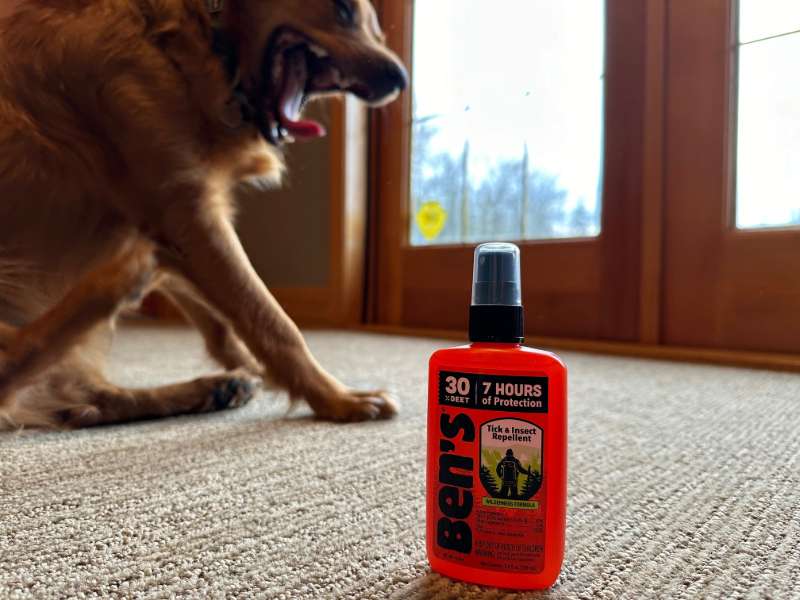
But wait – did we not cover that in the section about travel medicine? Yes and no. There are diseases such as dengue fever which you can not get vaccinated against. But you can do a lot to prevent this nasty mosquito-borne illness. Use mosquito spray. And while I understand that some or even most of us would prefer to slather ourselves in a natural solution, this is not a good idea here. Deet is your answer. Make sure you get a lotion, and that it contains at least 30-35% Deet. More isn’t better. This is all you need.
Now, and this is important (I know I say that a lot – but it is): what do you put on first? Sun blocker or Deet? The answer is sun blocker, then Deet on top. Make sure to re-apply both regularly.
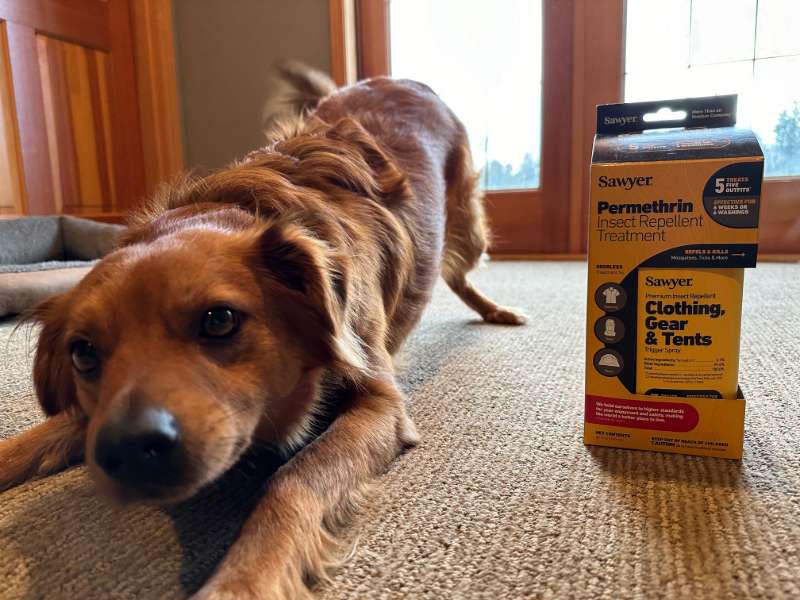
Another great preventative is Permethrin. It’s a spray used to treat clothing. The good news is that you can treat your clothes before you go, so you don’t have to pack it. Even if you do laundry in Vietnam you have nothing to worry about. It lasts up to six washes! Please make sure to only use it outdoors, away from pets and children and other humans.
Depending on which regions of Vietnam you visit, your doctor may prescribe malaria prevention as well.
Step 8: Prevent Overpacking
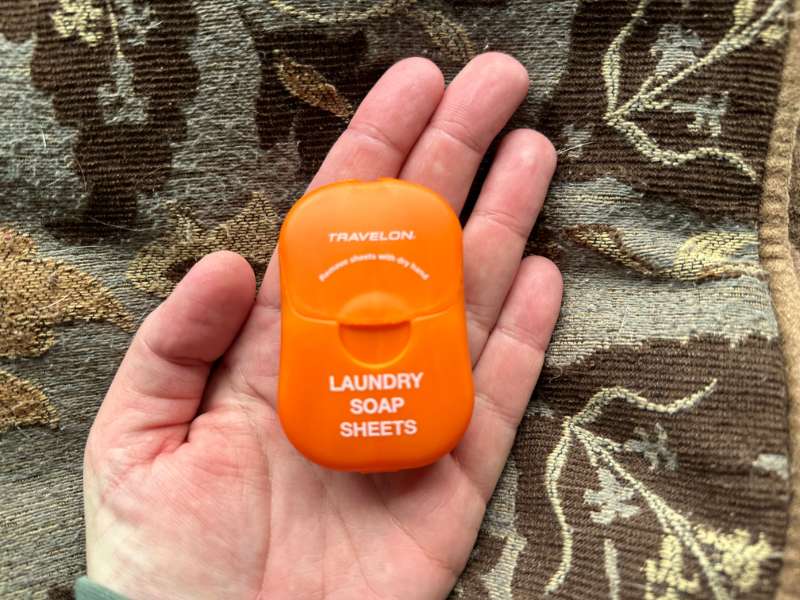
Should you bring one sun hat or be safe and bring five? Each one looks cute with a different outfit! Ah, decisions decisions. The real secret to not overpacking contains two parts. One, bring quick dry clothing. And two, bring a tiny box of laundry soap sheets. That way you can wash a few items in the sink in the evening, let them drip off, get a head start to drying with the hair dryer, and they will likely be dry in the morning. Imagine how much room that frees up in your suitcase for souvenirs!
That’s it! If you have done all the above things, gotten the medications and other necessities, have planned your itinerary, then there’s only one thing left to do: GO HAVE FUN!
Her Adventures is an education and empowerment community dedicated to helping women explore beyond their boundaries. We welcome all people who identify as non-masculine/non-male to connect, educate and inspire each other with their stories, fears, knowledge, questions, and ideas. Because together we make each other strong. We hope you will join us and see the world.


